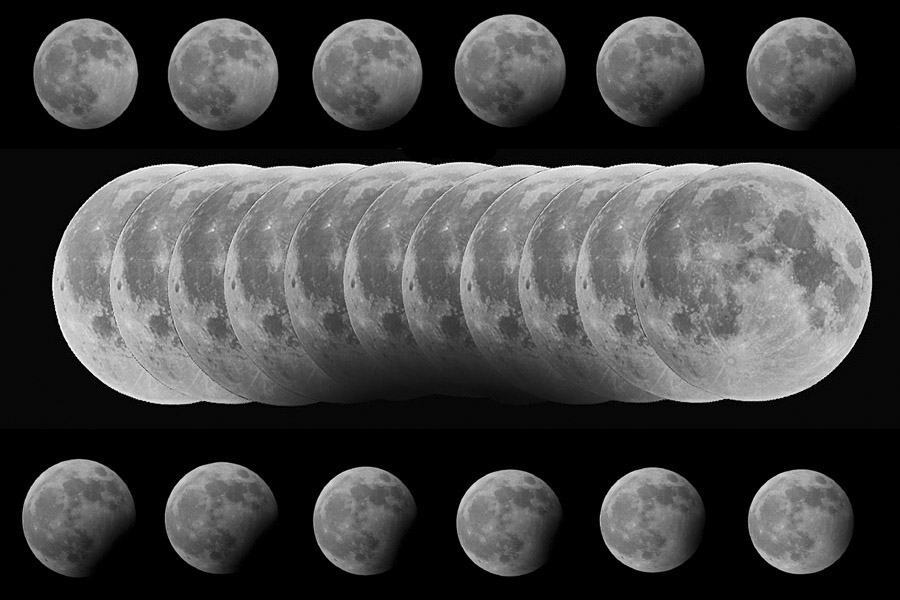January 2, 2009
A Lot of Nodding
images and diagram by Harald Paleske, Langendorf, Germany. South up
The reason the Moon looks different every time we observe it is the constant interplay of Sun angle (phase) and tilt (libration). In Harald's two views of the Schomberger area the crater lighting is at a similar high angle, but from opposite sides. In the right image the Sun has risen and illuminates the western wall of Schomberger. A week later (left image) the Sun has moved (really the Moon did, but it appears like the Sun moved around the stationary Moon) past Full to waning gibbous, shining on the eastern wall. The white arrow shows how librations have caused the orientation of the Moon to change. The arrow passes from the west wall (right side on this south up view of Schomberger) through the sharp-rimmed Schomberger A, over a similar sized but older crater (Scott E), to a small bright crater on the far wall of Scott. The lack of parallelism of the arrows is due to the change of nearly 12° in the longitudinal libration (or nodding) between the two images. A more pronounced difference occurs because the right image is also tilted about 5° more towards Earth than the left one. This allows us to see deeper within Schomberger A, most of the floor of Scott, and across the rim and central peaks of Amundsen, whose distant wall is on the farside.
Chuck Wood
Technical Details
Left: 2008 Dec 15 at 01:03 UT, Right: 2008 Dec 08 at 20:58 UT; both with 408mm Newtonian f~7m + DMK camera
Observatory location (Google Earth): 51°10'85" N 11°57'18.51" E
Related Links
Rükl plate 74
Harald's website including slightly larger version of LPOD photo
COMMENTS?
Click on this icon File:PostIcon.jpg at the upper right to post a comment.




